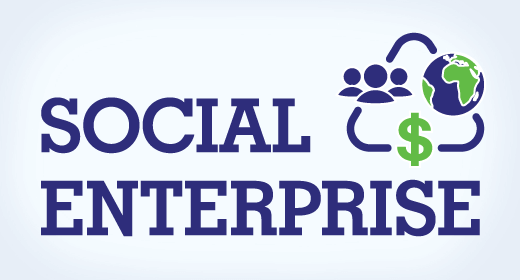Social Enterprises Memorandum
Name
Institution
Social Enterprises Memorandum
Social Enterprises代写 Social Enterprises Memorandum / Memorandum to: Government and social workers / Subject: Social enterprises for persons with disability
Memorandum to: Government and social workers
Subject: Social enterprises for persons with disability Social Enterprises代写
Ableism has persisted as an obstacle to the advancement of persons with special needs, as a generally accepted parlance to refer to able-bodied and actively participating in the mainstream social activities and often than not undermines the agency of disabled persons (Loja, Costa, Hughes, & Menezes, 2013). As a result, people living with a disability are alienated from normal economic, social and political systems in the society (Cherney, 2011).
In my professional experience, these social realities are elucidated when working with deaf people. These are people who are part of the diverse youth-based government programs. The main concerns raised by these groups as reiterated by Epley, Parks. And Parks (2011) and touched on deaf involvement in social, economic and political equal opportunities. Improvement and more interpretation programs, job-oriented vocational training. And social service equality are among the major request by deaf people for progressive social and economic life.
Therefore, a need for a sustainable, rational and practical initiative to solve the problem in the deaf community. Social Enterprises代写
In this context, one can brainstorm on a potential social enterprise and use it as a tool to solve the problems with deaf people. And well as using it as a springboard to helping the larger special needs community. The main motivation to take action in this line of thinking is the myriad of issues that have continued to impede the well-being, freedom, and inclusion of deaf people. What is lacking is the critical socially active voice to move beyond the neoliberal principles of running a business and to delve more on the social issues affecting the special needs group.
Problem presented Social Enterprises代写
People with hearing disability especially youths, feel isolated, mentally disturbed and demotivated because of the barrier to securing employment. The majority of them are at risk of poverty compared to persons without a disability. According to Fitchett (2017), they are mostly affected by the budget cut, closure of social services, retrenchment, pay cut and delay, poor working conditions, among other challenges. Although there is a lack of adequate information about unemployment in deaf people. It is general knowledge that like other disabled persons, deaf people struggle in the labor market (Hay, 2013).

Additionally, the little service they get such as sign interpretation and vocational training are not implemented in the job market and hence creating more barriers for them. The disabled are finding it difficult to get a job as notions of ableism and other forms of discrimination are taking footing in society. As such, the focus of this project is to give a proposition on how social workers can use holistic services for the deaf community by coming up with innovative social initiatives. That are suitable to the emerging labor market and demand. Thus, social workers need to advocate for social enterprises as a tool to increase deaf empowerment, inclusion, and economic independence.
Option 1 Social Enterprises代写
As stated earlier, a social enterprise is one of the best options to empower deaf persons. The enterprise will function as a model for establishing other socially-oriented businesses to employ persons with various disabilities. As such, a coffee-based social enterprise is ideal to engender the spirit of inclusion and advocate for social responsibility in the coffee industry. To create emphasis on the project and how it is community-oriented, the project will be referred to as “Coffee with Different Conversations.”
Therefore, the advantage of coming up with this social enterprise is to create an inclusive society where problems facing deaf communities are mitigated. The project will not only solve unemployment of the deaf people but it will also create a form of action-oriented advocacy for equal social and economic opportunities (De Ruysscher, 2016). A venture that is run and managed by deaf people in collaboration with people without a disability will function as a model to other business sectors to follow suit.
Unfortunately Social Enterprises代写
If this kind of initiative is not implemented the issues affecting persons living with a disability will perpetuate. When deaf people are unemployed, they continue to be dependent on families and friends and hence continue to be poorer. Also, there will be the exclusion of these groups which is against human rights. The deprivation of equal employment opportunities and empowerment programs for persons living deafness creates a society that is unjust and unbalanced.
Option 2 Social Enterprises代写
Additionally, the government in collaboration with banks and micro-finance institutions can create a revolving fund. The persons with disabilities will be allowed to borrow from the fund at low interest and little consideration of collateral. The advantage of this initiative is to allow persons to be self-employed. They will be able to start small businesses and companies that will play a big role in alleviating unemployment and poverty. However, if this option is not taken into consideration, as stated earlier in option 2, poverty, inequality and dependence of disabled people will continue to persist in society.
Recommendation Social Enterprises代写
The government and social welfare system should partner with individuals or non-governmental organizations to establish social enterprises and revolving funds to help people living with disabilities. A social enterprise such as “Coffee with Different Conversations” will majorly employ deaf people with support from abled professionals. Creating employment in this form will reduce their dependence on people.
The enterprise will open up a window of opportunities to other business industries in the bid to create an all-inclusive labor market. a revolving fund. On the other hand, can be used by disabled people as stepping stones to self-employment. The fund will allow them to compete with other business people on an equal platform. These initiatives should go beyond the cursive notion of simply employing or supporting disabled people to a more comprehensive form of inclusivity.
However, the implementation of the above options is a trade-off between benefits and detriments. Social Enterprises代写
The benefits include alleviation of poverty, independence, social equality and the creation of equal job opportunities. Detriments, on the other hand, include poverty, dependence, social inequality, biased employment among others. When the government/NGO/individual opens a social enterprise, in this case, a coffee café, with the sole intention to employ deaf people, then unemployment and poverty will reduce in that group.

The enterprise will also lower the dependence of these people on others for basic needs. If the social enterprise is not established, then this group will continue to be poor, and dependent as unemployment perpetuate. Therefore, it is better to have such enterprises to absorb labor force from disabled people than having none to reduce the resultant or existing social vices. The same case applies to the revolving fund for persons with disabilities.
Overall, social enterprises such as coffee café and revolving funds for the deaf if implemented will go notch higher in reducing the poverty index in the country. The initiatives will also lower poverty, unemployment, and dependence on active people. Thus, they will be more productive socially, economically and politically.
References Social Enterprises代写
Cherney, J.L. (2011). The rhetoric of ableism. Disability Studies Quarterly, 31(3).
Epley, C., Parks, E. and Parks, J., (2011). A Sociolinguistic Profile of the Jamaican Deaf Community. SIL Electronic Survey Report 2011. Available at http://www-01.sil.org/silesr/2011/silesr2011-026.pdf. (accessed on 22 March 2020)
Fitchette, L. (2017). Access to justice for deaf people in the EU. Available at: https://aiic.net/p/7625. (Accessed 22 March 2020).
Hay, D. (2013) Deaf and employment. European Union of the Deaf. Available at http://www.eud.eu/news/deaf-and-employment-crisis/ (accessed on 22 March 2020)
Loja, E., Costa, M.E., Hughes, B., and Menezes, I. (2013). Disability, embodiment, and ableism: Stories of resistance. Disability & Society, 28(2) 190-203.
更多其他:Academic代写 Essay代写 文学论文代写 Review代写 研究论文代写 Case study代写 Proposal代写 Report代写 Admission 艾莎代写



您必须登录才能发表评论。